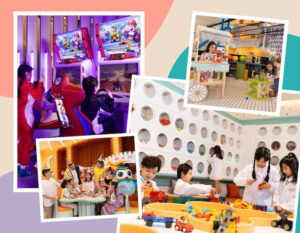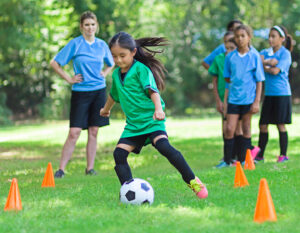
‘Grit’ is emerging as the biggest predictor of success, topping the usual suspects like IQ, education, and conscientiousness.
Psychologist Pip Johnson gives us the nittty gritty on what grit is, why it’s the buzzword of the moment and most importantly how we can go about fostering grit in our children.
What is Grit?
Grit is passion and perseverance for long-term goals. Grit is working hard toward challenges; and maintaining effort and interest over years despite setbacks, adversity, and plateaus in progress. It is the trait that makes inventors keep inventing despite failure, writers keep writing after knockback, and athletes keep training after injury and loss.
Thanks to the work of Angela Duckworth, Grit has recently grown in profile. Duckworth’s TED Talk describes the extensive research she has undertaken. Grit is unrelated to IQ and yet it predicts success across diverse settings with adults and children. Grittier people achieve more academically, are more likely to persist in adversity and perform better in competitions, as well as being more likely to stick at and perform well in their careers. Grittier adults are also more satisfied with their lives, experience more happiness, and less sadness.

What do ‘gritty’ people have in common?
Gritty people tend to be more motivated by meaning or engagement, and less motivated by pleasure. Those high on grit are also more optimistic, believe that their abilities can grow and improve, and that their actions influence the outcomes they achieve. They undertake ‘deliberate practice’ to achieve their goals, improving their skills in a very effortful, planned, and arduous (not fun!) manner.
So, now we know what gritty people look like mama, how do we build them?
Tips on Building Grit
When it comes to grit, the nature vs. nurture debate strikes again! But, the consensus is that we can nurture the trait; which is good news for us mamas! Here are a few key things we as parents can do to help foster grit:
1. Foster and Model Growth Mindset
A ‘Growth mindset’ is the belief that abilities can be developed through hard work as opposed to being fixed traits that we are unable to influence. If your kids understand that hard work and sometimes failure is all part of the process, they will be more resilient and keep trying in the face of setbacks. Try and be aware of yourself saying things that reflect a ‘fixed mindset’ (meaning our attributes and abilities are inherently fixed and unchanging). Instead, turn them into ‘growth mindset’ statements. For example, instead of saying “I can’t draw” you might say, “I need to work on my drawing” or rather than, “She’s so smart!” you could say, “She must work hard to achieve such great results”.
2. Praise effort, not talent
We so quickly jump to praising our children for being clever when they are good at things, but what happens when they do something that they find difficult? Research has shown it can lead to them to giving up more quickly and thinking, “Maybe I’m not smart after all!” Praise your children for how hard they have worked, and the process they went through to achieve an outcome or complete a task. If they had trouble and made mistakes but kept going, celebrate this (“I’m so proud that even when you had trouble, you just kept trying! Well done, look what you ended up achieving after all that hard work”).
3. Share your own failures
Discuss your own setbacks and failures with your kids so that they know that hard work, frustration and setbacks are all part of the journey! Make sure they know it is ok to fail, which means responding to their mistakes with an attitude of “what can we learn from this”. Normalising setbacks, slowness in progress, and struggles will help kids respond to setbacks with resilience, instead of thinking it is a sign they should stop and giving up.

4. Cultivating individual interests and passions
Half of the magic of what fuels grit, is ‘passion’. It is difficult to be gritty in something that kids don’t enjoy so look out for and make space for your kids to pursue activities that they enjoy.
5. Encourage, model, and support deliberate practice
Deliberate practice isn’t always fun, but it gets results! Take a leaf out of Duckworth’s book and adopt what she calls the “hard thing rule”. In her household, everyone needs to be working on one difficult thing at any given time. Each person can choose their “hard thing” and should be interested in it, but they need to stick with it for a set period and undertake deliberate practice daily. The lesson is that self-discipline and hard work brings results.
Grit is a relatively stable characteristic but with a ‘growth mindset’ it can be nurtured. It’s not too late for you either mama! Incorporate some of these tips to develop your own grit. Seeing your grittiness will inspire grit in others, particularly your little ones.
 View All
View All










 View All
View All




 View All
View All


 View All
View All













